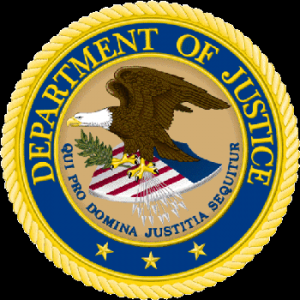TEXAS
A federal jury found three individuals connected with dozens of hospice and home health companies guilty today for their roles in a $154 million health care fraud scheme, according to officials.
One was a mayor in Texas at the time, officials stated.
 After a three-week trial, the jury found Rodney Mesquias, 47, of San Antonio, Texas, Henry McInnis, 47, of Harlingen, Texas, and Francisco Pena, 82, of Laredo, Texas, guilty of one count of conspiracy to commit health care fraud and one count of conspiracy to commit money laundering.
After a three-week trial, the jury found Rodney Mesquias, 47, of San Antonio, Texas, Henry McInnis, 47, of Harlingen, Texas, and Francisco Pena, 82, of Laredo, Texas, guilty of one count of conspiracy to commit health care fraud and one count of conspiracy to commit money laundering.
In addition, Mesquias and McInnis were found guilty of six counts of health care fraud and one count of conspiracy to obstruct justice.
Pena was also convicted of one count of health care fraud, obstruction of health care investigations and one count of false statements, while Mesquias and Pena were each convicted of one count of conspiracy to pay and receive kickbacks.
U.S. District Judge Rolando Olvera presided over the trial. He set sentencing for June 17.
“Rodney Mesquias and his co-conspirators preyed on the most vulnerable population – those in need of hospice and home health care– to line their pockets with millions of dollars and engage in lavish spending,” said Assistant Attorney General Brian A. Benczkowski of the Justice Department’s Criminal Division. “I thank our law enforcement partners for their hard work and dedication to bringing these health care fraudsters to justice. We look forward to continuing our partnership as we expand the Strike Force into the Rio Grande Valley.”
 “It’s disgusting how these three made millions by lying about and manipulating people’s end of life care,” said U.S. Attorney Ryan K. Patrick of the Southern District of Texas. “These men won’t have season tickets or nice cars where they are headed.”
“It’s disgusting how these three made millions by lying about and manipulating people’s end of life care,” said U.S. Attorney Ryan K. Patrick of the Southern District of Texas. “These men won’t have season tickets or nice cars where they are headed.”
“Hospices should provide meaningful quality of life care for patients in the final stage of their disease. Rather than help these vulnerable patients, Mesquias and McInnis operating as the Merida Health Care Group along with Dr. Francisco Pena, exploited them and their families to steal millions of dollars from the American taxpayer,” said Special Agent in Charge Christopher Combs of the FBI’s San Antonio Field Office.
According to evidence presented at trial, from 2009 to 2018, Mesquias, McInnis and Pena engaged in a scheme that involved over $150 million in false and fraudulent claims for hospice and other health care services.
Mesquias owned and controlled the Merida Group, a large health care company that operated dozens of locations throughout Texas. McInnis was CEO.
Pena, a licensed physician, was a medical director for the Merida Group and was at the time the mayor of Rio Bravo, Texas.
According to evidence presented at trial, the Merida Group enrolled patients with long-term incurable diseases, such as Alzheimer’s and dementia, at group homes, nursing homes, and in housing projects by falsely telling them that they had less than six months to live, and sent chaplains to lie to the patients and discuss last rites and preparation for their imminent death.
In fact, the patients were not suffering from a terminal illness that was expected to result in their death within six months, as is required to qualify for hospice services, and were in some instances walking, driving, working and even coaching athletic sporting events, the evidence at trial showed.
However, the defendants kept the patients on services for multiple years in order to increase revenue.
Mesquias also fired employees who refused to go along with the fraud, and directed them not to “[expletive] with his patients, or [expletive] with his money” by discharging patients from services, the evidence at trial showed.
Pena told a cooperating witness that, with respect to hospice patients, “the way you make money is by keeping them alive as long as possible,” according to trial testimony.
The evidence further established that Pena gave a false statement to the FBI and directed others to obstruct the FBI’s investigation by covering up Pena’s involvement in accepting kickbacks for hospice patients from his mayoral office at Rio Bravo City Hall and elsewhere.
The evidence also established that Mesquias and McInnis obstructed justice by causing the creation of false and fictitious medical records and produced them to a federal grand jury in order to avoid Indictment.
The records added false diagnostic information making it appear that patients were dying when, in fact, they were not.
According to evidence presented at trial, the scheme involved laundering the proceeds of the fraud by, for example, placing a company in the name of the girlfriend of a co-conspirator physician to conceal the distribution of hundreds of thousands of dollars in illegal kickbacks that were provided to the physician in exchange for home health and hospice referrals.
Mesquias and McInnis used proceeds derived from the scheme to purchase expensive vehicles such as a Porsche, expensive jewelry, luxury clothing from high-end retailers such as Louis Vuitton, exclusive real estate, season tickets for premium seating to see the San Antonio Spurs and a security detail and bottle service at high end Las Vegas nightclubs such as Hakkasan and Omnia, the evidence showed.
Mesquias and McInnis treated physicians to lavish parties at these elite nightclubs, plying them with tens of thousands of dollars in alcohol and other perks in exchange for medically unnecessary patient referrals.
Mesquias caused kickbacks and bribes to be paid to medical directors, including Pena, for the Merida Group’s affiliated entities in exchange for certifying that patients qualified for services when, in fact, they did not, and for referring patients for such services, the evidence showed.
DOJ NOTED:
HHS-OIG’s McAllen Field Office; the FBI’s San Antonio Field Office, including the Laredo and McAllen Resident Agency Offices; and the Texas Health and Human Services Commission investigated the case with the assistance of the Texas Attorney General’s Medicaid Fraud Control Unit.
Trial Attorney Kevin Lowell and Assistant Chief Jacob Foster of the Criminal Division’s Fraud Section and Assistant U.S. Attorney Andrew Swartz of the Southern District of Texas are prosecuting the case.
The Fraud Section leads the Medicare Fraud Strike Force. Since its inception in March 2007, the Medicare Fraud Strike Force, which maintains 15 strike forces operating in 24 districts, has charged more than 4,200 defendants who have collectively billed the Medicare program for nearly $19 billion.
In addition, the HHS Centers for Medicare & Medicaid Services, working in conjunction with the HHS-OIG, are taking steps to increase accountability and decrease the presence of fraudulent providers.

